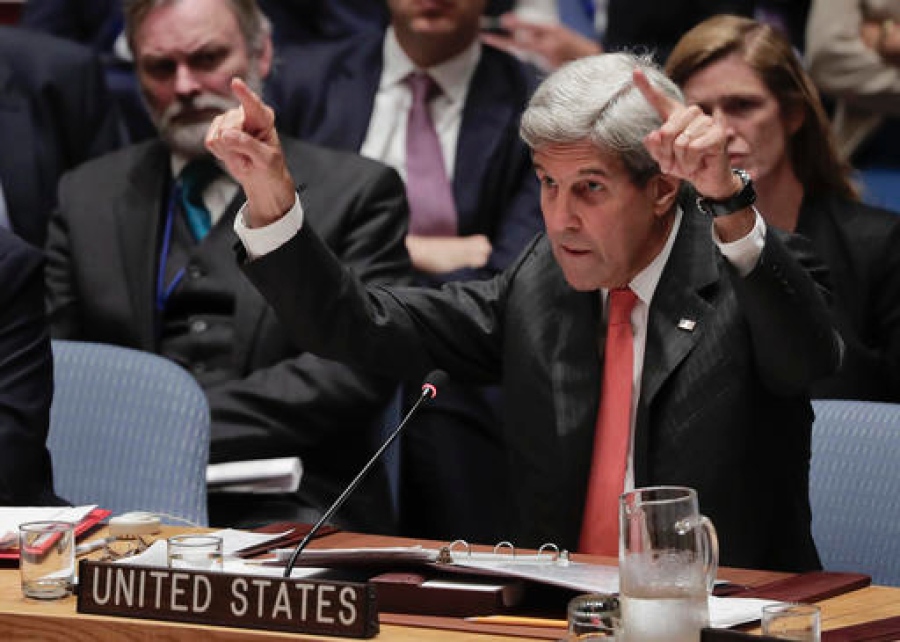New York, Beirut: The United States and Russia exchanged fierce accusations on Wednesday over Syria’s failed ceasefire during a U.N. Security Council session, which was originally aimed at reviving a bilateral deal to establish temporary truce that would pave the way for a permanent solution to the five-year-old conflict.
Russian Foreign Affairs Minister Sergei Lavrov lashed out at the Syrian opposition forces, accusing them of breaching the ceasefire. He noted that the Russian defense ministry was closely monitoring military developments in Aleppo. He added that the opposition did not withdraw from Castello Road and did not commit to the agreed truce.
Lavrov went on to say that opposition forces have committed 300 violations of the ceasefire.
The Russian foreign affairs minister urged immediate investigations into an attack against a Syrian Red Crescent aid convoy on Monday, which led to the killing of twenty civilians.
He stressed that his country has submitted all information and video tapes regarding the incident.
Lavrov also said that twenty out of 150 armed groups fighting with the opposition have failed to commit to the ceasefire, including Ahrar Ash-Sham armed militia.
“The key priority is to separate the opposition forces from the terrorists,” Lavrov said.
In response, U.S. Secretary of State John Kerry outlined a series of U.S. complaints against the head of the Syrian regime, Bashar Assad, and Russia. He stressed that Moscow has presented many distorted versions of the deadly attack on the aid convoy that has included everything from claims of a justifiable counter-terror strike to vehicles spontaneously combusting.
“This is not a joke,” Kerry said, sharply criticizing those who engage in “word games” to dodge responsibility over questions of “war and peace, life and death.”
“Supposedly we all want the same goal. I’ve heard that again and again,” Kerry told the council angrily, referring to international objectives of a united, secular and democratic Syria. “But we are proving woefully inadequate in … making that happen,” he added.
The U.S. secretary of state said that those who believe in a military solution to the crisis in Syria were wrong. He called on the international community not to succumb to Assad and terrorist groups who refuse to commit to the truce.
U.N. Secretary General Ban Ki-moon said: “The Syrian tragedy shames us all”, adding: “We are at a make-or-break moment.”
He continued: “I challenge everyone to use their influence now to restore a cessation of hostilities, enable humanitarian assistance everywhere it is needed and support the United Nations in charting a political path for the Syrians to negotiate a way out of the hell in which they are trapped. You have now no higher responsibility in your service as members of the United Nations Security Council.”
In remarks following the meeting, U.N. Special Envoy to Syria Staffan de Mistura said that, despite the horrors on the ground, some points of convergence had emerged from the intra-Syrian talks on framing a transition.
“Everything now depends on the renewal of the cessation of hostilities, and there is a chance … and you will know it in two days time,” De Mistura said.
New Zealand Prime Minister John Key, current Security Council President, said that “advancing a political solution must be the priority in the weeks ahead.”
He called on the U.S. and Russia, as well as other countries which have influence over Assad and opposition parties, to work together to restore the cessation of hostilities.
